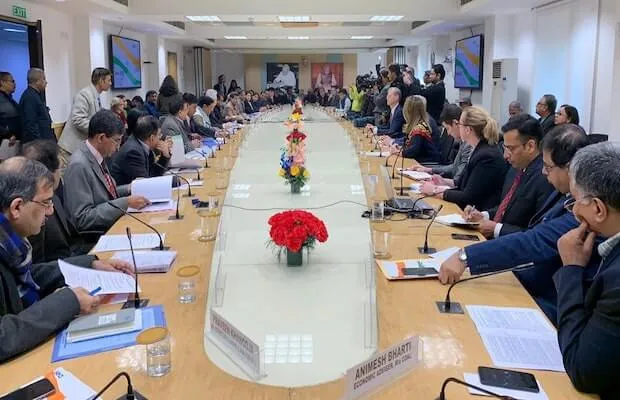IEA Launches its First in-Depth Review of India’s Energy Policies
- The International Energy Agency (IEA) in partnership with NITI Aayog has recently released its first in-depth review of India’s energy policies.

The International Energy Agency (IEA) has, in partnership with NITI Aayog, recently released its first in-depth review of India’s energy policies. The report highlights the achievements of India’s energy policies and provides recommendations to support the government’s goals of promoting well-functioning energy markets and boosting the deployment of renewables.
The IEA regularly conducts in-depth reviews of energy policies for its member and association countries. This is the first review carried out for India, which has been an IEA association country since March 2017.
The IEA report congratulates the Indian government on its outstanding achievements in extending citizens’ access to electricity, affordable efficient lighting and clean cooking in record time through historic schemes like SAUBHAGYA, UJALA and UJJWALA while pursuing energy market reforms and the swift deployment of renewable technologies. The report highlights the strong growth of renewables in India, which now account for almost 23 percent of the country’s total installed capacity. The review also found that energy efficiency improvements in India avoided 15 percent of additional energy demand, oil and gas imports, and air pollution as well as 300 million tonnes of CO2 emissions between 2000 and 2018.
India is becoming increasingly influential in global energy trends. The country’s demand for energy is set to double by 2040, and its electricity demand may triple, according to the IEA report. Indian oil consumption is expected to grow faster than that of any other major economy. This makes further improving energy security a key priority for India’s economy, the report says.
The IEA welcomed the Indian governments’ policies designed to conduct large-scale renewable energy auctions, open up coal mining to private companies, and promote access to oil and gas markets for foreign investors. The report offers a wide range of recommendations for reforms in support of India’s goal of promoting open and well-functioning energy markets in sectors such as coal, gas and electricity. These include building strong regulators to ensure non-discriminatory access, moving from state allocation to market pricing, and further rationalising energy subsidies.
In India’s renewables-rich states, the share of variable renewables in electricity generation is already above 15 percent, a level that calls for dedicated policies to ensure they integrate smoothly into the power system. NITI Aayog can play a strong role in working with the states to implement power sector reforms, advance grid integration, improve flexibility and coordinate energy policy decisions.
The review also strongly encourages India to institutionalise energy policy coordination across the government with a national energy policy framework.
Power and Renewable Energy Minister RK Singh congratulated the IEA and NITI Aayog for the launch of the report, “India’s energy policy is a global story. India has the largest unified power grid that operates in a single frequency. India has moved from scarcity to surplus electricity over the past few years while implementing the largest and the fastest energy access and energy efficiency programmes in the world.”
Also read

